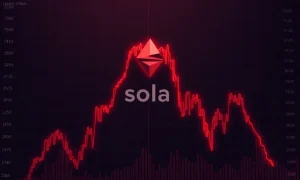Bitcoin investors are dramatically shifting strategies as market activity stabilizes above $60,000. Recent on-chain data reveals a significant transformation in investor behavior that signals Bitcoin’s maturation as an institutional-grade asset.
Bitcoin Activity Shows Remarkable Stabilization
Exchange withdrawals have slowed considerably, indicating reduced speculative trading. Centralized exchanges recorded a net inflow of 2,600.32 BTC in the last 24 hours. This represents a 35% decrease in average daily withdrawal volume compared to last month. Market analysts attribute this shift to several key factors:
- Reduced speculative pressure from short-term traders
- Macroeconomic uncertainties influencing holding strategies
- Institutional positioning favoring long-term storage
- Market consolidation near key resistance levels
Long-Term Holders Drive Bitcoin Activity Transformation
Long-term holders have increased their average holding periods by 10% this quarter. This behavioral shift demonstrates growing confidence in Bitcoin’s store-of-value proposition. Furthermore, these investors typically avoid frequent on-chain movements, contributing to overall market stability. The Exchange Net Flow Index has shown consistent improvement over the past seven days, reinforcing this positive trend.
Market Implications of Changing Bitcoin Activity
Despite price stability above $60,000, macroeconomic factors continue influencing investor decisions. Interest rate expectations and global risk sentiment remain crucial drivers. Regulatory clarity also plays a significant role in future on-chain activity patterns. Market participants closely monitor these developments while maintaining cautious optimism.
Institutional Adoption Reshapes Bitcoin Activity Patterns
The current Bitcoin activity trends align with broader institutional adoption. Exchange inflows typically indicate market stability and capital preservation preferences. This pattern suggests investors might be preparing for larger capital movements or returning to platforms for strategic positioning. The transformation from speculative asset to investment vehicle continues accelerating.
Future Outlook for Bitcoin Activity
On-chain activity will remain a critical barometer for price movements. Market observers anticipate continued stabilization as institutional participation grows. However, external factors including regulatory developments and economic data will significantly influence future trends. The current holding strategy shift represents a fundamental maturation of the Bitcoin market ecosystem.
Frequently Asked Questions
What does net inflow mean for Bitcoin prices?
Net inflow typically indicates reduced selling pressure and potential price stability, as investors move coins to exchanges for holding rather than immediate selling.
How does reduced withdrawal volume affect market volatility?
Lower withdrawal volumes generally correlate with decreased market volatility, as large-scale movements that trigger price fluctuations become less frequent.
What signals are long-term holders sending?
Long-term holders demonstrate confidence in Bitcoin’s future value by increasing holding periods, indicating belief in its long-term appreciation potential.
How do macroeconomic factors influence Bitcoin activity?
Interest rates, inflation concerns, and global risk sentiment significantly impact investor decisions regarding Bitcoin holding versus trading strategies.
What role do regulatory developments play?
Regulatory clarity directly affects institutional participation and investor confidence, influencing both trading activity and long-term holding patterns.
How might this trend evolve in coming months?
The holding strategy trend will likely continue as institutional adoption increases and Bitcoin becomes more integrated into traditional investment portfolios.








